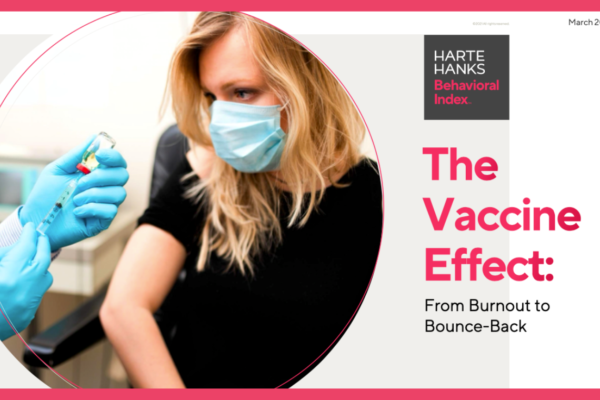One third of consumers now more mindful of the brands they choose
New research from global marketing firm Harte Hanks shows that 35 per cent of respondents believe the pandemic has made them much more mindful of the brands they choose. The study also showed that more generally, as more vaccines are distributed, consumer confidence is beginning to bounce back from lockdown frustration.
Published in March, the fifth instalment of the Harte Hanks Behavioural Index is based on findings from 500 million global social conversations, a survey sample of 2,600 people, 20,000 global stories and 2 million semantic artifacts. The initiative was launched at the beginning of the coronavirus pandemic and has subsequently been conducted on a quarterly basis, to evaluate brands on criteria such as empathy and action.
Get stories like these directly in your inbox every week
Click here to subscribe to our (free) FIPP World Newsletter
While a third (35 per cent) of respondents agreed that the pandemic has made them much more mindful of the brands they choose, 76 per cent retain a focus on the quality of the goods and services that these companies produce. This is followed by affordability (important to 70 per cent of respondents), reliability (68 per cent), honesty (56 per cent), and 40 per cent say that they are invested in brands that protect people’s health.
More generally, when asked about their current emotional state of mind, consumers indicated that they were at a 73 on a scale of 0 (being anger) to 100 (being joy), indicating a return to a more hopeful state of mind as we begin to move out of the pandemic.

“Hope is replacing negativity and will clearly drive behaviour moving forward,” says Gretchen Ramsey, Chief Strategy Officer at Harte Hanks. “People are expressing a desire to resume some of their day-to-day routine and try new things (which may include a new relationship) while being mindful of the behavioural changes they want to uphold post-pandemic. Relationships, whether with people or brands are up for grabs in the post-vaccine society. If you don’t nurture them, they could quickly rebound into a new, more loving one pretty quickly.”
Millennials are feeling a significant increase in hopefulness and positivity. They are 24 per cent more likely to feel optimistic about business travel, 23 per cent more optimistic about their finances, 16 per cent more optimistic about their mental health, and 15 per cent more optimistic about their shopping habits than other population segments.

People of all ages are looking forward to doing everyday activities post-vaccine including visiting a barber or hair salon (50 per cent), eating out at a restaurant (46 per cent), going to the office every day (44 per cent), and shopping on the high street (38 per cent).
You can find out more about the study, including its full results here.










